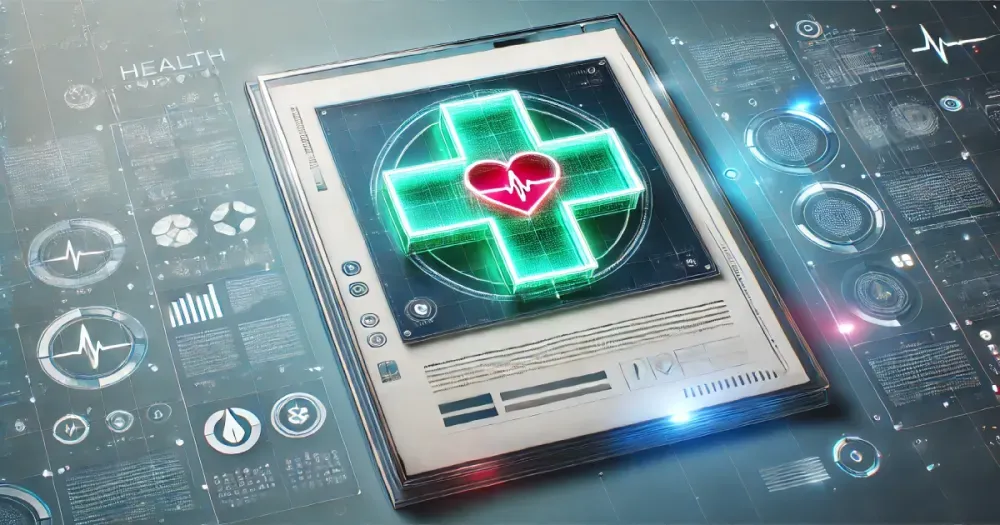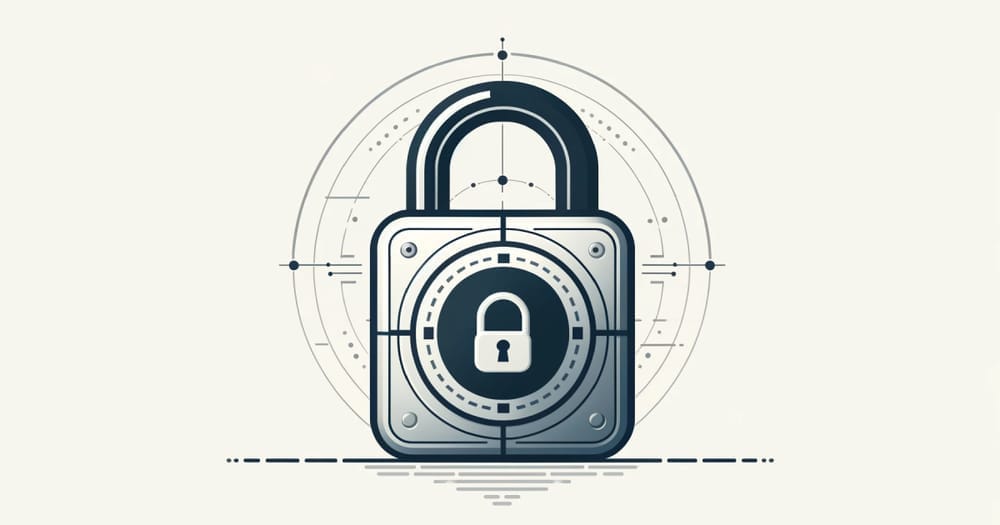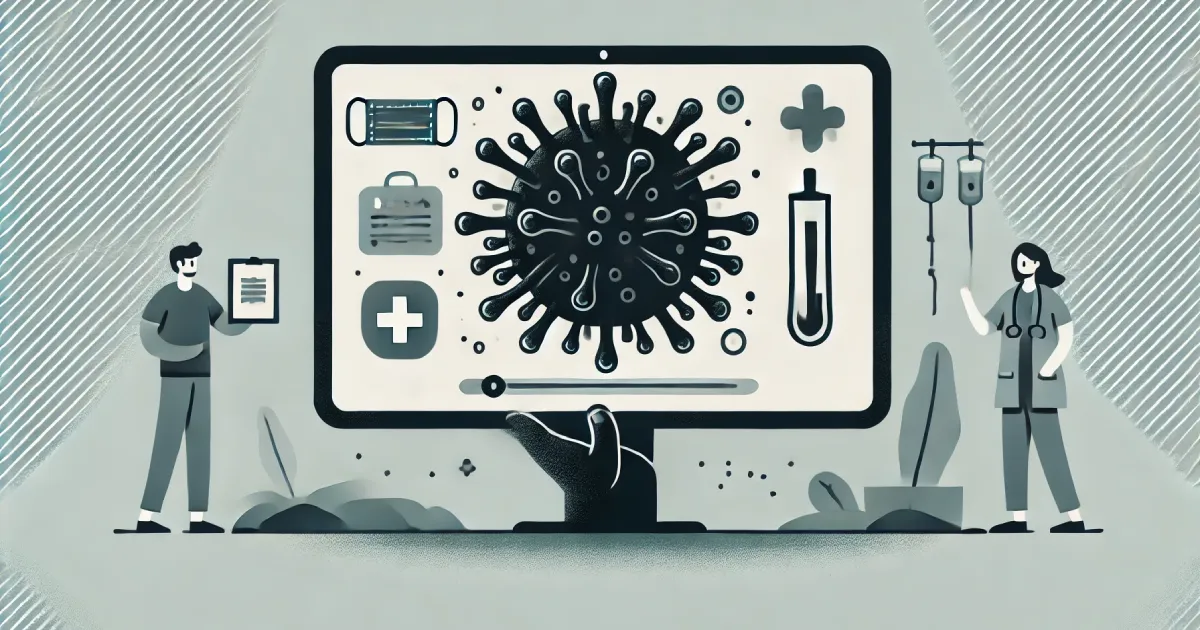The Future of Electronic Health Records (EHR)

Digital patient files, known as Electronic Health Records (EHR), are now essential in modern healthcare. They replace old paper records and help doctors manage patient information better. EHR systems make healthcare more efficient and improve patient care quality.
As technology gets better, EHR systems can change healthcare even more. This article looks at what's coming next for EHR, including new trends, tech improvements, and problems to solve.
The Evolution of EHR

Historical Background
The concept of EHR dates back to the 1960s, but it wasn't until the late 20th century that digital records began to replace paper charts in significant numbers. Initially, EHR systems were rudimentary, often limited to storing administrative data rather than clinical information. However, the push for digitization accelerated in the 2000s, driven by advancements in computer technology and growing recognition of the inefficiencies and risks associated with paper records.
Current State of EHR
Today, EHR systems are sophisticated platforms that integrate various types of patient information, including medical histories, lab results, imaging, and treatment plans. Despite their widespread adoption, current EHR systems face challenges such as interoperability issues, data security concerns, and user dissatisfaction due to cumbersome interfaces and workflows.
Key Trends Shaping the Future of EHR

Interoperability and Data Integration
Interoperability—the ability of different EHR systems to communicate and share data—is a significant challenge in the current healthcare landscape. The future of EHR will likely see improvements in this area, driven by standards such as HL7 FHIR (Fast Healthcare Interoperability Resources). Enhanced interoperability will enable seamless data exchange between different healthcare providers and systems, improving care coordination and patient outcomes.
Artificial Intelligence and Machine Learning
Artificial intelligence (AI) and machine learning are poised to revolutionize EHR systems by enhancing data analysis and decision-making processes. These technologies can sift through vast amounts of data to identify patterns, predict health outcomes, and suggest personalized treatment plans. For example, AI can help identify patients at risk of developing chronic conditions, allowing for early interventions and better management of resources.
Cloud-Based EHR Systems
Cloud-based EHR systems offer numerous advantages over traditional on-premises solutions, including lower costs, greater scalability, and improved accessibility. As healthcare providers increasingly adopt cloud technology, EHR systems will become more flexible and capable of supporting a wide range of applications and services. This shift will also facilitate remote access to patient data, enabling better collaboration among healthcare professionals.
Patient-Centered EHR
The future of EHR will be increasingly patient-centered, focusing on empowering individuals to take an active role in managing their health. Features such as patient portals, mobile apps, and telehealth integrations will provide patients with easy access to their health information, appointment scheduling, and direct communication with healthcare providers. This approach can lead to better patient engagement, adherence to treatment plans, and overall health outcomes.
Enhanced Data Security and Privacy
As EHR systems evolve, ensuring data security and privacy will remain paramount. Future EHR systems will likely incorporate advanced encryption methods, blockchain technology, and stringent access controls to protect patient data from cyber threats and unauthorized access. Additionally, robust compliance frameworks will be necessary to meet regulatory requirements and maintain patient trust.
Innovations Driving the Future of EHR

Blockchain Technology
Blockchain technology has the potential to enhance the security and integrity of EHR systems. By creating a decentralized and immutable ledger of patient data, blockchain can prevent unauthorized alterations and ensure that health records are accurate and trustworthy. This technology can also simplify the process of sharing data between providers while maintaining patient privacy.
Internet of Things (IoT)
The integration of IoT devices with EHR systems will enable real-time monitoring and data collection from wearable devices, smart sensors, and remote monitoring tools. This continuous flow of data can provide valuable insights into patient health, allowing for timely interventions and personalized care plans. For example, a wearable device that monitors a patient's heart rate can alert healthcare providers to potential issues before they become critical.
Natural Language Processing (NLP)
Natural Language Processing (NLP) can significantly improve the usability of EHR systems by enabling more intuitive and efficient data entry and retrieval. NLP technology can convert unstructured text, such as clinical notes, into structured data that can be easily analyzed and searched. This capability can help healthcare providers quickly find relevant information and reduce the time spent on documentation.
Genomic Data Integration
The integration of genomic data into EHR systems will allow for more personalized and precision medicine. By incorporating genetic information into patient records, healthcare providers can tailor treatments based on an individual's genetic makeup, improving the effectiveness of interventions and reducing adverse effects. This approach can lead to better outcomes for patients with conditions such as cancer, where treatments can be highly personalized.
Challenges and Considerations

Regulatory and Compliance Issues
The regulatory landscape for EHR systems is complex and constantly evolving. Ensuring compliance with regulations such as the Health Insurance Portability and Accountability Act (HIPAA) in the United States and the General Data Protection Regulation (GDPR) in Europe will be a significant challenge for future EHR systems. Healthcare providers and EHR vendors must stay abreast of regulatory changes and implement necessary measures to maintain compliance.
User Experience and Adoption
Despite the potential benefits of advanced EHR systems, user experience and adoption remain critical concerns. Complex and unintuitive interfaces can lead to user frustration and hinder the effective use of EHR systems. Future EHR designs must prioritize user-friendly interfaces and streamlined workflows to encourage widespread adoption among healthcare providers. Training and support will also be essential to help users adapt to new systems.
Data Ownership and Consent
As patient data becomes increasingly valuable, issues related to data ownership and consent will become more prominent. Patients must have control over their health information and understand how it is being used. Future EHR systems should include robust consent management features that allow patients to grant and revoke access to their data easily. This transparency can help build trust between patients and healthcare providers.
Integration with Legacy Systems
Many healthcare providers still rely on legacy systems that may not be compatible with modern EHR solutions. Ensuring smooth integration with these older systems will be crucial for the successful implementation of new EHR technologies. This challenge requires a careful balance between adopting innovative solutions and maintaining the functionality of existing systems. Strategies such as using middleware or adopting phased implementation approaches can help address this issue.
The Impact of COVID-19 on EHR

Accelerated Adoption of Digital Health Solutions
The COVID-19 pandemic has accelerated the adoption of digital health solutions, including EHR systems. The need for remote patient monitoring, telehealth services, and efficient data sharing has highlighted the importance of robust and flexible EHR systems. This trend is likely to continue, driving further innovation and adoption of digital health technologies. The pandemic has demonstrated the value of having comprehensive and accessible health data to manage public health crises effectively.
Changes in Healthcare Delivery Models
The pandemic has also prompted changes in healthcare delivery models, with a greater emphasis on telehealth and remote care. Future EHR systems must adapt to these changes by offering seamless integration with telehealth platforms and supporting remote patient monitoring and virtual consultations. This shift will require EHR systems to be more adaptable and capable of handling diverse data sources and formats.
The Role of Government and Policy

Incentives for EHR Adoption
Government incentives and policies play a crucial role in promoting the adoption and advancement of EHR systems. Programs such as the Meaningful Use initiative in the United States have encouraged healthcare providers to adopt EHR systems by offering financial incentives. Future policies should continue to support the development and implementation of innovative EHR technologies. Additionally, governments can play a role in funding research and development efforts to address existing challenges and improve EHR functionality.
Standardization of EHR Systems
Standardization is essential for achieving interoperability and ensuring the consistent use of EHR systems across different healthcare settings. Governments and regulatory bodies should work towards establishing common standards and guidelines for EHR systems to facilitate data sharing and improve the overall quality of care. International collaboration on standardization efforts can also help address cross-border healthcare challenges.
Final Thoughts
The future of Electronic Health Records holds immense potential for transforming healthcare delivery and improving patient outcomes. As technology continues to advance, EHR systems will become more integrated, intelligent, and patient-centered.
However, realizing this potential will require addressing challenges related to interoperability, data security, user experience, and regulatory compliance. By embracing innovation and prioritizing patient care, the healthcare industry can harness the full power of EHR systems to create a more efficient, effective, and equitable healthcare system.
Key Takeaways
| Topic | Key Points |
|---|---|
| Historical Background | EHRs evolved from basic tools to comprehensive patient care platforms. |
| Current State of EHR | Modern EHRs integrate various data but face interoperability and user experience challenges. |
| Interoperability | Future EHRs will enhance data sharing for better care coordination. |
| AI and Machine Learning | AI will improve data analysis, predict health outcomes, and automate tasks. |
| Cloud-Based EHR Systems | Cloud solutions offer cost savings, scalability, and better access to data. |
| Patient-Centered EHR | Future EHRs will empower patients with portals, apps, and telehealth. |
| Data Security and Privacy | Advanced security measures will protect patient data. |
| Blockchain Technology | Blockchain will enhance EHR security and data integrity. |
| IoT Integration | IoT devices will enable real-time health monitoring and personalized care. |
| Natural Language Processing | NLP will streamline data entry and improve usability. |
| Genomic Data Integration | Genomic data integration will enable personalized medicine. |
| Regulatory Compliance | EHRs must comply with regulations like HIPAA and GDPR. |
| User Experience | Future EHRs need user-friendly interfaces for better adoption. |
| Data Ownership and Consent | Patients need control over their health information. |
| Integration with Legacy Systems | New EHRs must integrate smoothly with existing systems. |
| Impact of COVID-19 | The pandemic accelerated digital health adoption and highlighted EHR importance. |
| Government and Policy | Incentives and standards from governments will drive EHR improvements. |
Top EHR Solutions
- Epic Systems: Epic is renowned for its comprehensive EHR system that covers a wide range of functionalities, including electronic medical records, patient engagement, and interoperability. It is widely adopted by large healthcare organizations and offers robust features for improving patient care coordination.
- Oracle Cerner: Oracle's Cerner EHR software emphasizes interoperability and offers features like clinical documentation, order management, and population health management. It focuses on enhancing communication and data exchange among healthcare providers.
- Athenahealth: Athenahealth's EHR platform stands out for its user-friendly interface and features that streamline clinical workflows and revenue cycle management. It is particularly popular among small to mid-sized healthcare practices.
- Veradigm: Veradigm provides EHR solutions tailored to various healthcare settings, including hospitals and clinics. Its EHR systems are known for their flexibility, interoperability, and patient engagement capabilities.
- eClinicalWorks: eClinicalWorks offers EHR software designed to improve patient-provider interactions through features like appointment scheduling, telehealth capabilities, and patient portals. It is widely used by healthcare practices aiming to enhance patient engagement and care delivery.





